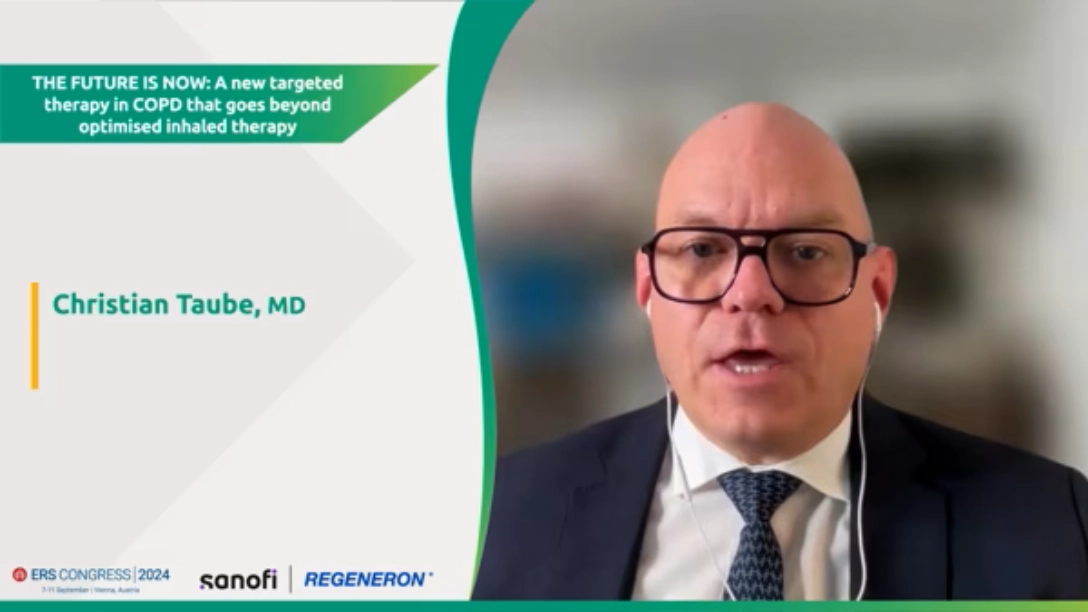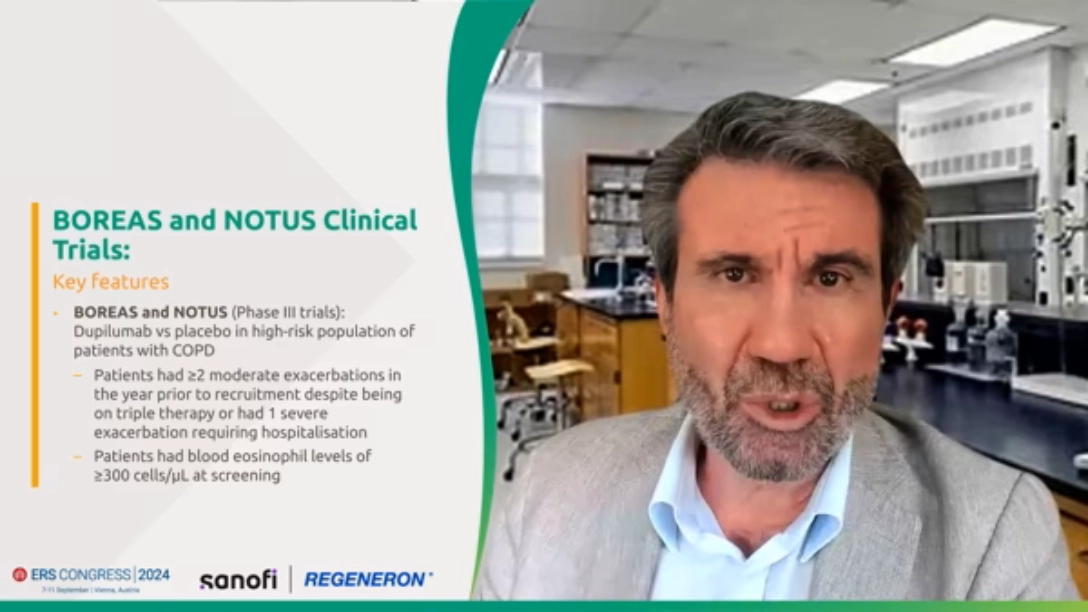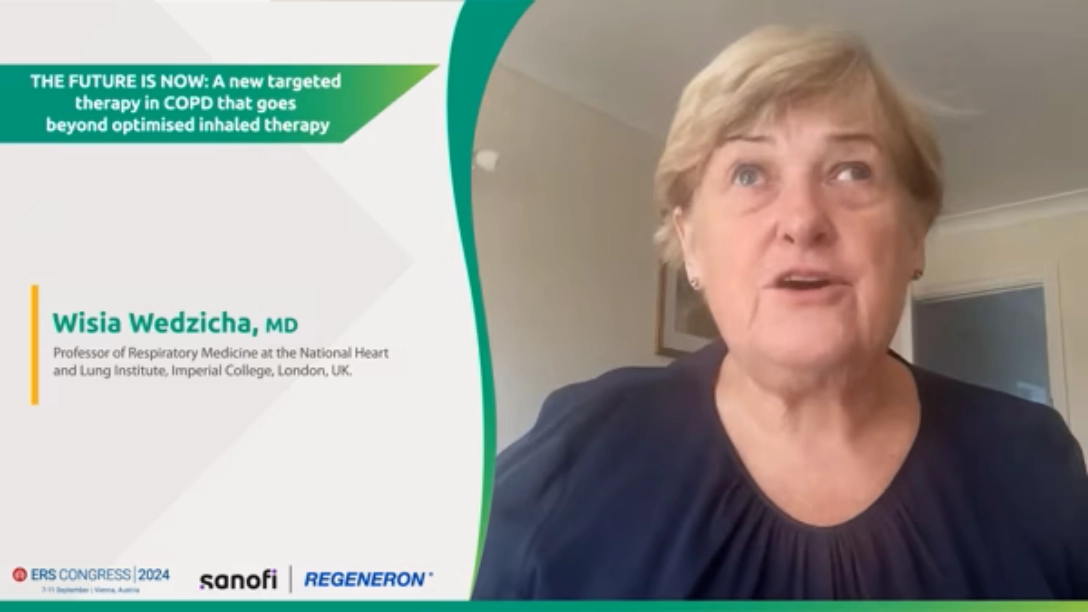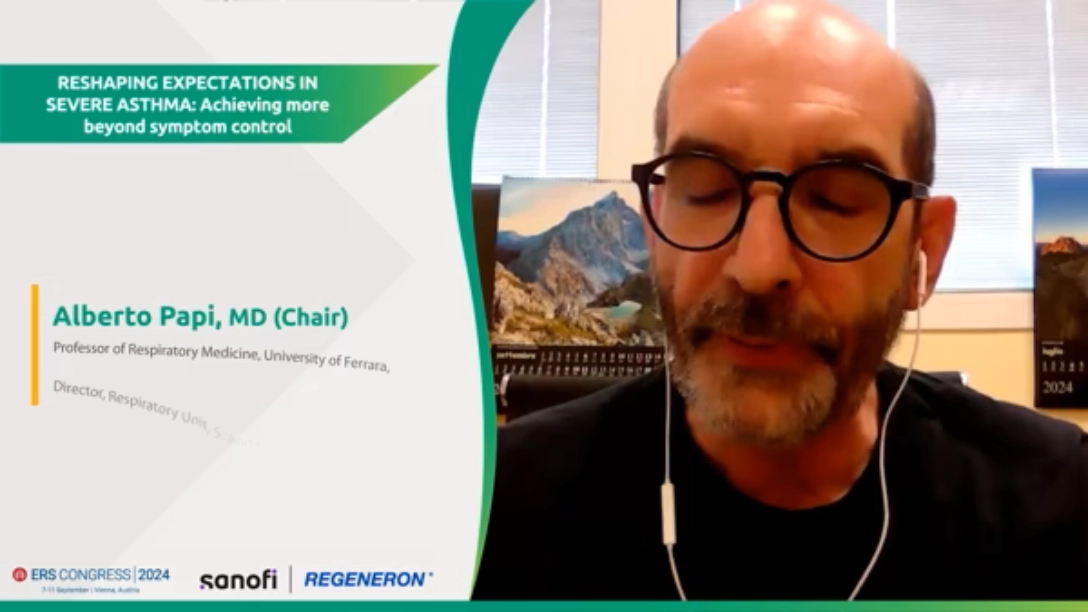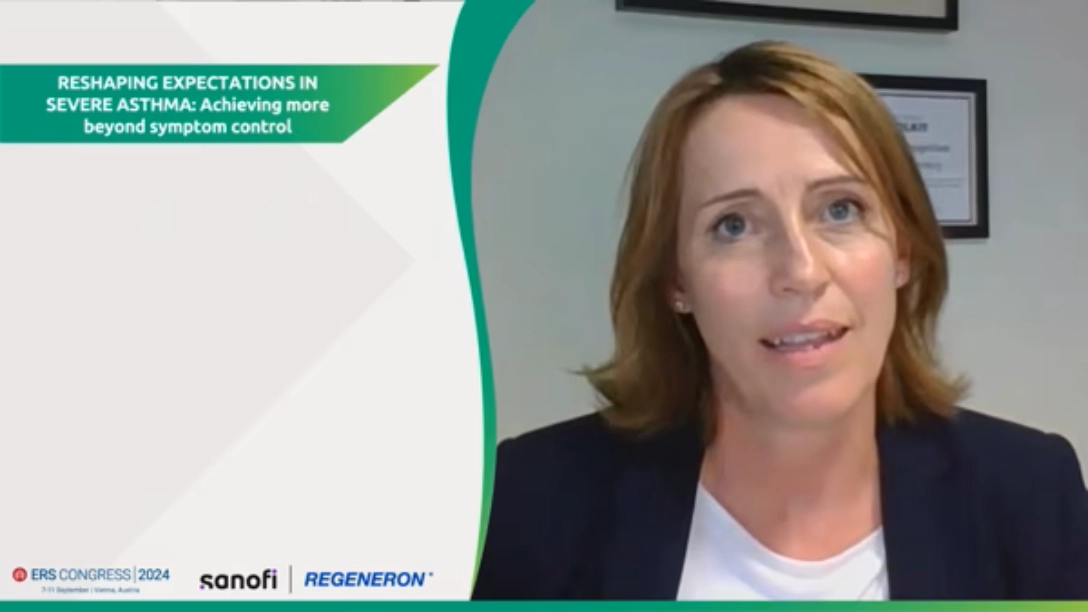European Respiratory Society (ERS) congress 2024
The European Respiratory Society annual congress took place in Vienna this year. Whether or not you were able to attend the congress, here is an overview of the highlights of this major European event bringing together the scientific community in respiratory care.
Recognized international experts gave outstanding lectures on Asthma and COPD:
Discover the therapeutic potential of dupilumab in COPD - the first-ever targeted therapy and first new treatment approach for this disease in more than a decade. Recently approved in the EU for COPD patients with elevated blood eosinophils uncontrolled on optimised inhaled therapy, dupilumab targets key cytokines of type 2 inflammation.
Faculty:
Christian Taube (Chair) Professor of Medicine, Director of Dept. of Pulmondary Medicine, Ruhrlandklinik, University of Essen, Germany
Kenneth R. Chapman, MD, MSc, Professor of Medicine, University of Toronto, Director of the Asthma and Airway Centre, University Health Network, Toronto, Canada
Wisia Wedzicha, MD, Professor of Respiratory Medicine, Head of the Respiratory Division, National Heart and Lung Institute, Imperial College London, United Kingdom
ERS
While the imperative of preventing asthma-related fatalities remains paramount, today's treatment landscape offers patients and clinicians higher expectations of care. Explore the advancements reshaping treatment objectives in asthma, including innovative visual endpoints that reveal changes in airway remodeling. Expect insights that illuminate the significant strides in asthma management and set a course for an optimistic journey ahead.
Faculty:
Alberto Papi, MD (Chair), University of Ferrara, Italy
Celeste Porsbjerg, MD, PhD, University of Copenhagen, Denmark
Ian D. Pavord, MA, DM, FRCP, FERS, FMedSci, Oxford University Hospitals, United Kingdom
Severe asthma is characterized by airway remodeling, driven by complex pathophysiologic mechanisms. Clinically, this leads to persistent symptoms and reduced lung function, affecting patient outcomes. With the advent of biologics, the potential to modify airway remodeling is being explored, raising critical questions: Can biologics halt or reverse these changes? In the era of advanced treatments, the possibility of disease modification offers new hope, which will be further discussed in an engaging fireside chat.
Faculty:
Klaus Rabe, MD, PhD, FERS (Chair) University of Kiel, Germany
Celeste Porsbjerg, MD, PhD, University of Copenhagen, Denmark
Mario Castro, MD, MPH, University of Kansas School of Medicine, Kansas City, USA
ERS
A real-world patient case will set the stage for discussing on-therapy remission in pediatric severe asthma. A panel will explore the key factors needed to achieve this goal, focusing on current challenges and potential solutions. Additionally, we will examine how biologics could play a transformative role in helping children with severe asthma achieve clinical remission.
Faculty:
Len Bacharier (Chair) Vanderbilt University Medical Center, Nashville, USA
Sharon Dell, MD, FRCPC, BC Children’s Hospital – University of British Columbia, Vancouver, Canada
Mario Castro, MD, MPH, University of Kansas School of Medicine, Kansas City, USA
Chronic obstructive pulmonary disease (COPD) places a significant burden on patients, closely tied to underlying inflammation. Understanding the role of Type 2 inflammation in COPD is key to advancing treatment approaches. With evolving biologic therapies, new perspectives are emerging on how to target inflammation, offering hope for better patient outcomes.
Faculty:
Henrik Watz, MD (Chair) German Center for Lung Research, Grosshansdorf, Germany
Mona Bafadhel, MD, King’s College London, United Kingdom
Alberto Papi, MD, University of Ferrara, Italy
ERS
Chronic obstructive pulmonary disease (COPD) involves a complex pathophysiology that continues to challenge researchers. Emerging insights into IL-33 genetics offer new perspectives on its role in disease progression and airway remodeling. Understanding IL-33's impact on COPD may reveal promising opportunities for therapeutic targeting, positioning IL-33 as a potential key player in future treatment strategies.
Faculty:
Klaus Rabe, MD, PhD, FERS (Chair) University of Kiel, Germany
Stephane Christenson, MD, MAS, University of California, San Francisco, USA
Paola Rogliani, MD, Università di Roma ‘Tor Vergata’, Italy
Mer infomasjon om Dupixent på felleskatalogen.no


